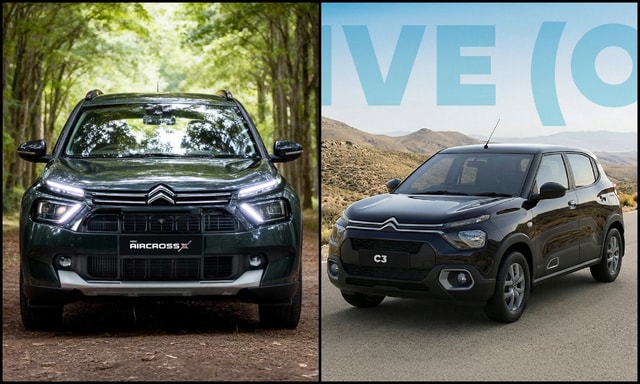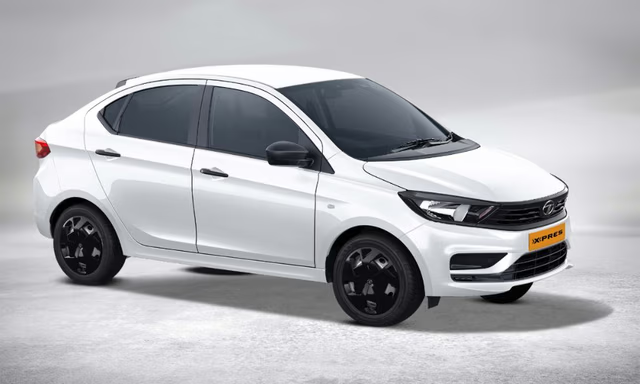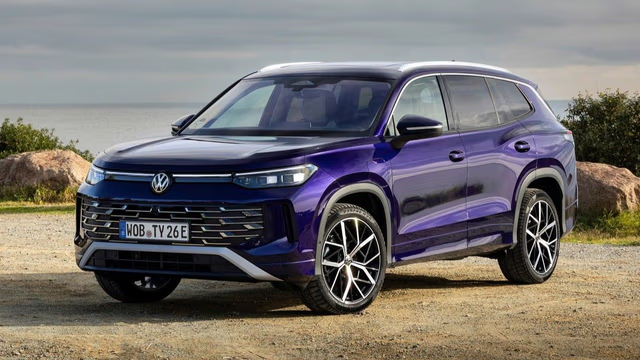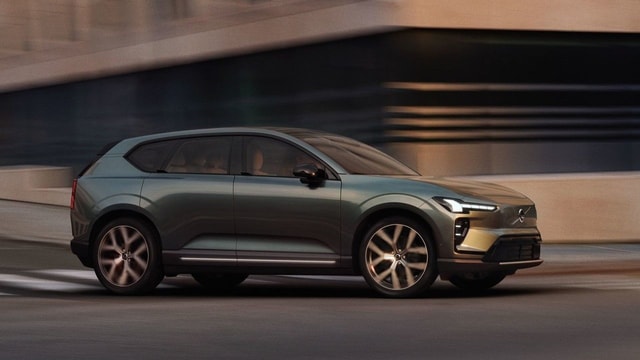Electrics Cars vs. PHEVs vs. Hybrid Cars: A Quick Guide

Long gone are the days when you only had to check the fuel type for new car models. If you want to buy a new car these days, you need to understand the various technical stuff. With technological advancements, diesel and petrol cars are not your only option.
If you have done some car surfing lately, you would've come across terms such as EVs, PHEVs, and hybrids. Are you wondering how these cars differ and which is the right choice for you?
Without further ado, let's understand the difference between electric, PHEVs, and hybrid cars.
Electric Cars
Typically, electric cars or EVs are battery-operated models that use rechargeable batteries. Car owners have to charge their EVs using an external power source. The difference between EVs, PHEVs, and hybrids are that electric vehicles run on 100% electricity.
There are no conventional diesel or petrol engines and tanks in these cars. The best part is that electric vehicles generate zero emissions. However, unlike PHEVs and hybrids, they are not apt for longer drives.
Pros & Cons
- No tailpipe emissions
- Quiet and smooth acceleration
- Per mile costs for EVs is far lesser than gasoline cars
- The EVs take time to recharge

Photo Credit: wallpapercave.com
PHEVs
PHEVs stands for plug-in hybrid vehicles. These cars are gasoline-powered hybrids that use large-sized batteries. The operation of a plug-in is much like an electric vehicle. Essentially, the gasoline engine is dormant when its battery has no charge. As the battery runs out of charge, the engine comes into play.
The cars also use regenerative braking to save up on fuel. In short, you can plug it and also re-fuel it, it is a plug-in hybrid (PHEV). Some of the best PHEV examples include the Chrysler Pacifica Hybrid, Toyota Prius Prime, and BMW 530e.
Pros & Cons
- The car continues to run on gasoline even after draining the battery
- The state tax incentives offset high upfront costs
- They cost more than hybrid

Photo Credit: unsplash.com
Hybrid Cars
A car can be hybrid if it runs on 100% gasoline, but it also relies on electric motors for propulsion. The electric motors delay the use of gasoline engines to save up on fuel. Sometimes, the car uses both a gasoline engine and electric motors for enhanced power.
The electric motors work like generators when you hit the break. The energy that the vehicle generates when you hit the brakes gets stored in a small battery for later use. Toyota Prius and Lexus RX450h are great examples of hybrid models.
Pros & Cons
- It doesn't require charging.
- Gas propulsion allows you to travel long distances
- Low upfront costs
- It doesn't offer as much energy efficiency as EVs

Photo Credit: www.drivespark.com
So, what will it be for you – electric cars, PHEVs, or hybrid vehicles?
Latest News
 Shams Raza Naqvi | Jan 23, 2026Toyota Urban Cruiser Ebella Vs Maruti Suzuki e Vitara: What’s Different?Now that Toyota has unveiled on its first EV for India we compare it to the Maruti Suzuki e Vitara on which the SUV is based.1 min read
Shams Raza Naqvi | Jan 23, 2026Toyota Urban Cruiser Ebella Vs Maruti Suzuki e Vitara: What’s Different?Now that Toyota has unveiled on its first EV for India we compare it to the Maruti Suzuki e Vitara on which the SUV is based.1 min read Jaiveer Mehra | Jan 23, 2026Mahindra Thar Roxx Star Edition Launched At Rs 16.85 LakhSpecial edition of the Thar Roxx gets new Citrine Yellow paint option and blacked-out cosmetic elements.1 min read
Jaiveer Mehra | Jan 23, 2026Mahindra Thar Roxx Star Edition Launched At Rs 16.85 LakhSpecial edition of the Thar Roxx gets new Citrine Yellow paint option and blacked-out cosmetic elements.1 min read Jaiveer Mehra | Jan 23, 2026Citroen Aircross X Max 5-Seat Variant, C3 Live (O) Launched In IndiaCitroen says that the new variants are made to order, with the C3 Live (O) getting some significant feature additions over the base Feel trim.2 mins read
Jaiveer Mehra | Jan 23, 2026Citroen Aircross X Max 5-Seat Variant, C3 Live (O) Launched In IndiaCitroen says that the new variants are made to order, with the C3 Live (O) getting some significant feature additions over the base Feel trim.2 mins read Jaiveer Mehra | Jan 23, 2026Tata Tigor-Based Xpres Gets Petrol, CNG Powertrain Options; Prices Start At Rs 5.59 LakhTata’s fleet market offering till date had only been available as an EV.2 mins read
Jaiveer Mehra | Jan 23, 2026Tata Tigor-Based Xpres Gets Petrol, CNG Powertrain Options; Prices Start At Rs 5.59 LakhTata’s fleet market offering till date had only been available as an EV.2 mins read Bilal Firfiray | Jan 23, 2026Volkswagen Tayron R-Line Local Assembly Begins In India Ahead Of LaunchVolkswagen begins local assembly of the Tayron R-Line in India at its Chhatrapati Sambhajinagar plant, ahead of its Q1, strengthening its premium SUV portfolio.1 min read
Bilal Firfiray | Jan 23, 2026Volkswagen Tayron R-Line Local Assembly Begins In India Ahead Of LaunchVolkswagen begins local assembly of the Tayron R-Line in India at its Chhatrapati Sambhajinagar plant, ahead of its Q1, strengthening its premium SUV portfolio.1 min read Bilal Firfiray | Jan 22, 2026Volvo EX60 Revealed With 810km Range And 10-Minute Fast Charge CapabilityVolvo unveils the all-electric EX60 SUV with up to 810km range, 10-minute fast charging, Google Gemini AI, and next-gen safety, setting a new benchmark in the midsize EV segment.1 min read
Bilal Firfiray | Jan 22, 2026Volvo EX60 Revealed With 810km Range And 10-Minute Fast Charge CapabilityVolvo unveils the all-electric EX60 SUV with up to 810km range, 10-minute fast charging, Google Gemini AI, and next-gen safety, setting a new benchmark in the midsize EV segment.1 min read
 Bilal Firfiray | Jan 21, 2026Tata Punch Facelift Review: New Turbo Engine; Same Old SoulWith the update, the Tata Punch facelift retains its character of being a healthy runabout, which is perfect for Indian roads. But have these changes made it any better?7 mins read
Bilal Firfiray | Jan 21, 2026Tata Punch Facelift Review: New Turbo Engine; Same Old SoulWith the update, the Tata Punch facelift retains its character of being a healthy runabout, which is perfect for Indian roads. But have these changes made it any better?7 mins read Amaan Ahmed | Jan 17, 2026Bajaj Chetak C25 First Ride Review: Basic, Likeable E-Scooter For First-Time RidersThe Chetak C25, in quite a few ways, is poles apart from the larger and more powerful 30 and 35 Series models, but in its mannerisms, it is very much a Chetak.8 mins read
Amaan Ahmed | Jan 17, 2026Bajaj Chetak C25 First Ride Review: Basic, Likeable E-Scooter For First-Time RidersThe Chetak C25, in quite a few ways, is poles apart from the larger and more powerful 30 and 35 Series models, but in its mannerisms, it is very much a Chetak.8 mins read Bilal Firfiray | Jan 9, 2026Toyota Urban Cruiser Hyryder: 10,000 km Long-Term ReviewAfter spending over three months and 10,000 km with the Toyota Urban Cruiser Hyryder Hybrid, we were impressed by its real-world mileage, seamless hybrid, practical comfort, and Toyota reliability. Is it the best C-SUV then?5 mins read
Bilal Firfiray | Jan 9, 2026Toyota Urban Cruiser Hyryder: 10,000 km Long-Term ReviewAfter spending over three months and 10,000 km with the Toyota Urban Cruiser Hyryder Hybrid, we were impressed by its real-world mileage, seamless hybrid, practical comfort, and Toyota reliability. Is it the best C-SUV then?5 mins read Seshan Vijayraghvan | Jan 8, 20262026 Mahindra XUV 7XO Review: Big On Tech, Bigger On ComfortThe new Mahindra XUV 7XO is flashier, feature packed, and comes with more advanced tech. But are the changes just incremental or actually substantial?1 min read
Seshan Vijayraghvan | Jan 8, 20262026 Mahindra XUV 7XO Review: Big On Tech, Bigger On ComfortThe new Mahindra XUV 7XO is flashier, feature packed, and comes with more advanced tech. But are the changes just incremental or actually substantial?1 min read Preetam Bora | Jan 10, 2026Simple One Gen 2 First Ride Review: 265 km Claimed Range!The Gen 2 model of Simple Energy’s first electric scooter gets a fair few updates, including new features, tech, more range and lighter weight. We spent a couple of hours with the Simple One Gen 2 to find out if it manages to impress.6 mins read
Preetam Bora | Jan 10, 2026Simple One Gen 2 First Ride Review: 265 km Claimed Range!The Gen 2 model of Simple Energy’s first electric scooter gets a fair few updates, including new features, tech, more range and lighter weight. We spent a couple of hours with the Simple One Gen 2 to find out if it manages to impress.6 mins read






















































































































